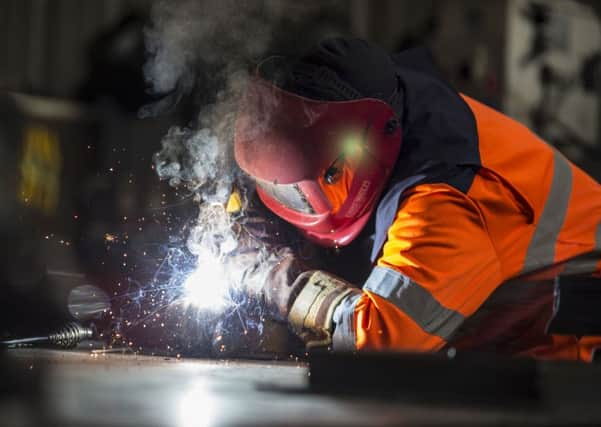Martin Flanagan: Steel wheels start rolling again
This article contains affiliate links. We may earn a small commission on items purchased through this article, but that does not affect our editorial judgement.


Substantial and disruptive sector consolidation was the result, including at the Liberty Group-owned Dalzell and Clydebridge plants in Scotland.
It makes all the more remarkable the £126 million turnaround at British Steel, the former Long Products Europe business of Tata Steel now owned by Greybull Capital.
Advertisement
Hide AdAdvertisement
Hide AdIn its first year as an independent business again, primarily Scunthorpe-based British Steel – the old name was revived after 17 years – has made an underlying profit of £47m to replace a loss of £79m in the previous year.
The turnaround has also been achieved in the teeth of a 44 per cent increase in raw material costs following sterling’s weakness since the Brexit vote.
Cost-saving initiatives are at the heart of the bounceback, including British Steel employees agreeing a 3 per cent cut in salary that has now come to an end, and with staff now rewarded via a collective 5 per cent stake in the business.
But the new owners have done better as well in terms of product development and market growth, the new agility maybe casting an unflattering light on Tata’s stewardship when tougher times descended. Alternatively, desperate employees on the brink of a plant shutdown may have been more prepared to accept new management’s strong medicine than any urgings of Tata.
Five hundred new emplyees have joined the business in the past year, and £40m has been pledged by Greybull Capital for investment in 2017-18. The business seems to have rediscovered its steel sea legs.
Catching the bus
Advertisement
Hide AdAdvertisement
Hide AdAngela Merkel may assert that Europe can no longer depend on America in the unsettling megaphone age of Trump, but some UK companies still can.
Transport major FirstGroup’s US business has come to its rescue as the weakness of sterling that has pushed up fuel costs for its UK rail and bus divisions has had the opposite effect on its considerable stateside earnings, typified by its First Student yellow school bus arm. The US has kept FirstGroup’s show on the road.